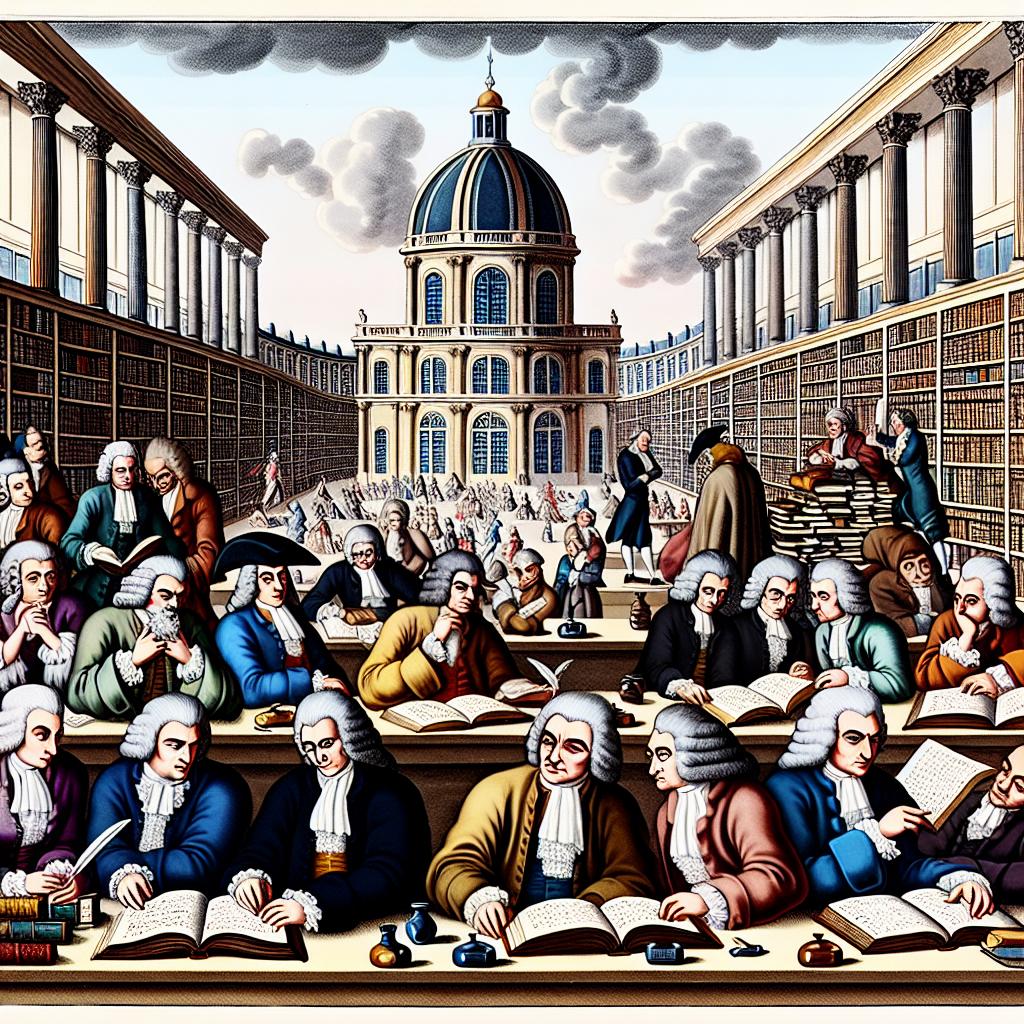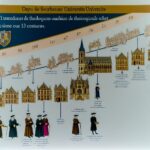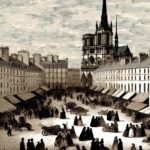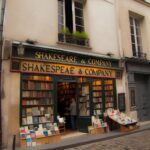Paris: A Hub of Intellectual Advancement in the Age of Enlightenment
The Age of Enlightenment was more than just an epoch in European history; it was a transformative period spotlighting the power of reason, science, and individualism. Paris emerged as a significant focal point during this time, not only shaping intellectual discourse within Europe but also radiating influence that transcended continental boundaries. This exploration delves into how Paris contributed to and was shaped by the Enlightenment.
Intellectual Epicenter
In the 18th century, Paris wasn’t just a city; it was a thriving nexus of knowledge and intellectual interchanges. It became a magnet for philosophers, scientists, and artists, creating a lively atmosphere that nourished brilliant minds and the evolution of provocative ideas.
The Importance of Salons
The salons of Paris were more than mere social gatherings—they were the bedrock of intellectual ferment. Typically hosted by women of social influence, these salons were a breeding ground and crucible for diverse subjects, encompassing philosophy, science, politics, and art. The informal yet stimulating environment of a salon allowed attendees to wrestle with ideas, challenge conventional wisdom, and participate in dialogues that would ultimately nurture and spread groundbreaking ideas across Europe.
The Rise of Scientific Societies
Scientific inquiry gained remarkable momentum in Paris, largely due to the formation of authoritative institutions such as the Académie des Sciences, established in 1666. This academy became a collaborative space for leading scientists who pioneered significant advancements in disciplines like physics, chemistry, and biology. Research findings were meticulously chronicled and shared through official publications, reinforcing the academy’s role as a pillar in the global dissemination of knowledge.
Influential Enlightenment Figures
Paris was not merely a stage for intellectual exchange; it was home to some of the most illustrious figures of the Enlightenment, each leaving indelible imprints on its intellectual and cultural fabric.
Voltaire
An emblematic figure in the Enlightenment, Voltaire settled in Paris, where his sharp wit and relentless advocacy for civil liberties flourished. His writings, which often critiqued the French government and the Catholic Church, were instrumental in seeding Enlightenment principles in public consciousness.
Denis Diderot
Another intellectual titan, Denis Diderot, also graced the city with his presence. He was at the helm of the ambitious Encyclopédie project, which sought to compile comprehensive human knowledge. This monumental work was a beacon of the Enlightenment’s commitment to education and rationality, offering insights across disciplines.
Art and Literature
Paris was a crucible not only for philosophical and scientific breakthroughs but also for artistic and literary innovation. The city was a stage where new creative movements and genres flourished, reflective of the broader intellectual awakening.
Theatre and Literature
Parisian theatres were vibrant forums for dramatic exploration, where works resonated with Enlightenment ethos. Writers such as Jean-Jacques Rousseau engaged with themes of personal freedom and the social contract, weaving narratives that offered critical reflections on human nature and governance.
Visual Arts
Artistic experimentation was rife in Paris, with artists embracing Enlightenment themes of light and reason. This period of visual art innovation pioneered new techniques and forms that not only complemented the intellectual pursuits of the time but also informed the aesthetic evolution of modern art.
Conclusion
The Age of Enlightenment was a defining chapter in history, with Paris at its epicenter. The city’s unique blend of salons, academies, and burgeoning cultural scene created an incubator for ideas that would alter the course of societies and influence the generations that followed. To delve deeper into the intricacies of the Age of Enlightenment and its prevailing impact, consider exploring additional resources such as Britannica’s detailed page on the Enlightenment.
In sum, Paris was not just a city during the Age of Enlightenment; it was a living testament to the power of ideas and the enduring influence of cross-cultural and intellectual exchanges. Its role in fostering Enlightenment ideals underscores the city’s lasting legacy as a beacon of knowledge and cultural dynamism.








